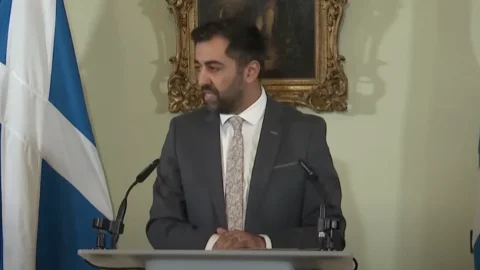Flurry of reactions and positions taken after Prime Minister Mario Monti's ultimatum and his spread-saving proposal: Italy will not give the Tobin Tax the go-ahead if cooperation “does not exist for other aspects, such as the financial policy for sovereign bonds". In fact, according to Monti, a shield is needed to defend the countries that have done their homework (which have approved the fiscal compact and launched structural reforms) from speculation to allow them to finance themselves at rates that are not excessively burdensome. The road to the shield could pass either through the use of ESM and EFSF to purchase government bonds directly or through the ECB. Let's see what sides are on the field awaiting the outcome of the summit.
CONTRADICTIVE SIGNALS FROM BERLIN AND SKEPTICISM FROM FINLAND
The first reactions come from Berlin which also sends the Tobin tax issue back to the sender: “The German cabinet has established the possibility of a Tobin Tax, deemed necessary. This is Germany's position, it hasn't changed at all since yesterday,” said a government source.
Berlin stigmatized it as “exaggerated to panic over the rates on Italian and Spanish government bonds” and reiterated that “in Europe we must learn to make adequate use of the tools we have, and which have been ratified. There is a wide variety of tools available” to use as an antispread tool, such as the EFSF and the ESM.
In short, no changes to the rules of use of EFSF or ESM. But the anti-spread recipe asks for some clarification on their use. Several points on the table. For example, given that the ESM is a privileged creditor when it lends money to states in difficulty, it must be clarified that "seniority" does not apply if the ESM buys primary and secondary government bonds. Or, to grant a banking license to the two funds which opens up the use of repos with the ECB and the use of leverage, otherwise the EFSF and ESM will not have the liquidity to buy government bonds.
In the afternoon, however, the opening of the German Finance Minister Wolfgang Schaeuble arrives: in an interview with the Wall Street Journal, among the possible measures, he cites direct purchases of government bonds through the European rescue funds EFSF and ESM. And he adds: "Germany is ready for short-term measures against the crisis". The minister then says that Germany is ready to open up on Eurobonds, provided that there is a European budget "tsar" with broad powers in Brussels over the finances of individual countries. With partial backtracking: ”Nothing has changed in the German position: only at the end of a process towards a true and stable fiscal union will it be possible to speak of common debt management. But only at that point”, he explained, later commenting on the interview with the WSJ.
Germany is a tough nut to crack and, as usual, sends mixed signals. The head of the 'five wise' independent economic advisers to the German government, Wofgang Franz, in an interview with the Rheinische Post newspaper expressed his skepticism about the possibility that the fiscal compact and the ESM stability mechanism could be enough to calm the financial markets. For Franz, only the redemption fund, proposed in the autumn by the 'five wise men', could lead to a way out of the crisis: "The redemption fund offers a possibility oriented towards a precise objective useful for getting out of the current mess and avoid a breakup of the monetary union”. On the contrary, the purchase of bonds by the ECB or the introduction of Eurobonds would not be a promising path.
Finland's position is also skeptical: "It's difficult to work miracles, we have our own rules and we have to respect them," said Finnish Prime Minister Jyrki Katainen
BLAIR, HOLLANDE, REHN AND IRELAND PRO MONTI
But Monti receives the support of the former UK minister, Tony Blair. “I share what was declared by the Italian Prime Minister Mario Monti: Germany must commit itself to this operation and, in exchange, the other countries must implement the necessary reforms. The alternative is to lose the common currency, which would have a high price”. And from Irish Finance Minister Michael Noonan: Keeping the yield on Italian bonds "at 4% or even below" is one of the most important issues on the agenda of the summit. And also of François Hollande who takes sides in favor of Rome, probably well aware that the next one to end up in the crosshairs of speculation, as has already happened in the past months, could be France: "We must act to help the countries that need it: Spain and Italy".
Then there is the appeal from the Commissioner for Economic and Monetary Affairs, Olli Rehn: according to him at the European summit today and tomorrow in Brussels it is important that the heads of state and government of the EU adopt measures that calm the turbulence of the markets and help Italy and Spain to counter the high interest rates, moving towards a risk pooling system.
The position of the chief economist of the ECB, Peter Praet, also shuffled the cards in the day's frantic skirmishes: “Monti's anti-spread plan violates our mandate, he said.
THE DOUBTS OF THE ECB'S CHIEF ECONOMIST
THE TECHNICAL LEGAL VERSION OF PALAZZO CHIGI
But Monti is well prepared to defend himself from technicalities and legal technicalities and to assert his reasons. In fact, together with the text of the Market stabilization programme, a note has been prepared which clarifies its possible legal implications, with the main objective of dissolving Germany's doubts. And this is because the block-spread mechanism proposed by Italy is not contrary to the independence of the ECB and to the prohibition of the EU treaties on the monetary financing of states. As MF writes, the mechanism provides for purchases of government bonds by the ECB, which should operate as an agent on behalf of the EFSF-ESM funds, which guarantee the central bank against possible losses. Securities of countries with accounts in order would be bought, within ranges of fluctuations for rates and spreads, defined on the basis of the economic fundamentals of the individual countries and market conditions (also with the support of a minister of Eurozone Finance).





